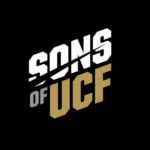Tessa Headrick, a mother of two from Crossville, Tenn., is considering purchasing Premier Passes for her family when they visit Disney World for two days in late November.
Headrick, a small-business owner, says her goal is efficiency. The family wakes up early to be among the first guests to enter the parks, and they always pay extra for line-skipping services. Headrick hopes Premier Pass frees her from constantly checking her phone to monitor wait times.
“I’m looking forward to using it, and it actually feeling like a vacation,” she says.
Chris Edwards, a 40-year-old from Winter Park, Fla., who works in corporate marketing, canceled his annual passes to Disney World last year. (Annual passholders get perks including free parking and merchandise and dining discounts.) Edwards and his wife didn’t pay for other expedited-line products and, as a result, they spent too much time in lines.
“For the standard user that’s going to Disney, it now feels like it’s almost a tax you have to pay if you want to enjoy your time,” he says.
Travelers have more options for expedited screening programs. More than 20 million people, a record, are enrolled in TSA PreCheck, the Transportation Security Administration says. The
cost of Global Entry, which grants approved fliers faster entry to the U.S. from abroad for five years, increased to $120 from $100 in October.
Some also turn to Clear, an expedited security screening lane, for $199 annually.
Ben Harrell,
Booking.com’s U.S. managing director, points to early hotel check-in as one of the perks travelers don’t mind splurging on, citing a recent survey by the travel site. Americans will pay more readily than travelers from other countries, he says.
Richard Rogers travels often for work as owner of a software company. The 57-year-old from Vancouver, Wash., encounters more early check-in fees at hotels. A hotel in Washington, D.C., once tried charging him $75 to check in two hours early, even with his room ready.
“If we’re gonna price people out of traveling and it’s going to become like an elite industry, then what’s the use?” he says.
Whether travelers should pony up depends on trip length and their overall financial situation, industry watchers say.
“That’s always the biggest question: finance or convenience?” says Trish Smith, a Kansas City, Mo.-based travel adviser.
Since 2019, sales of skip-the-lines travel experiences have increased more than five times, online marketplace GetYourGuide says. Some of the most popular places to skip the line include the Pantheon in Rome and the Empire State Building observation deck in New York, the company says.
Other companies are turning to subscriptions. Vail Resorts rolled out gear membership for 12 resorts this season. The My Epic Gear program costs $50 to join per person for a ski season. It allows members to get higher-end gear delivered to them and picked up slopeside, so they don’t need to bring their own or stand in line for rentals. Vail charges adults $55 per use in the U.S., and $45 for kids ages 3 to 12.
Bo-Yun Liu, a 38-year-old in tech sales from New York City, recently considered signing up for the gear membership because he likes testing high-quality rentals. He decided against it because he felt fine bringing his own gear. Once his family grows and more people need skis, he will reconsider.
In the meantime, Liu spends extra for convenience with Global Entry.
He says: “Life is too short to be spent waiting in line all the time.”


 www.sonsofucf.com
www.sonsofucf.com

 www.sonsofucf.com
www.sonsofucf.com